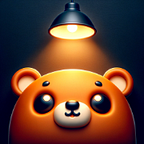Limit the Sugar: It’s the Devil in Disguise
Sugar is everywhere — in our drinks, snacks, and even foods we consider healthy. While it might make things taste great, the impact of excessive sugar on our health is anything but sweet.
I used to have a major sweet tooth. My pantry was always stocked with sugary snacks, and I never thought twice about reaching for a soda. But as I started learning more about nutrition and the effects of sugar, I realized I needed to make some changes.
The more I researched, the clearer it became: sugar was doing more harm than good.
Excessive sugar consumption is linked to a host of health problems. Weight gain was the first issue I noticed. Sugary foods and drinks are high in calories but don’t fill you up, leading to overeating.
I also learned that high sugar intake increases the risk of heart disease by contributing to obesity, inflammation, and high blood pressure. And let’s not forget about diabetes — sugary drinks are a significant risk factor for developing type 2 diabetes.
Plus, sugar is terrible for teeth. It feeds the harmful bacteria in your mouth, leading to cavities and tooth decay. On top of all that, high sugar diets have been linked to mental health issues like depression and anxiety.
I started to see sugar as incredibly addictive. Every time I consumed it, my brain released dopamine, the “feel-good” neurotransmitter. This made me crave more sugar, creating a cycle that was hard to break. But breaking that cycle was essential for my health.
Here are some changes I made to limit sugar in my diet.
First, I became a label reader. Sugar hides in many foods under different names like high fructose corn syrup, sucrose, and maltose.
By reading labels, I could spot these hidden sugars and make better choices. I also switched to natural sweeteners like honey, maple syrup, and stevia. These alternatives helped satisfy my sweet tooth without the health risks associated with refined sugar.
Eating whole foods became a priority. Fruits, vegetables, whole grains, and lean proteins are naturally low in sugar and packed with nutrients. I made it a habit to avoid sugary drinks. Sodas, energy drinks, and even fruit juices can be loaded with sugar. Instead, I opted for water, herbal teas, or sparkling water with a splash of lemon or lime.
Being mindful of portions was another crucial step. When I did indulge in sweets, I kept the portions small. Enjoying a piece of dark chocolate was much better than devouring a large slice of cake. Cooking at home also gave me more control over the ingredients, making it easier to avoid added sugars found in many restaurant and pre-packaged foods. I limited processed foods, as they often contain high amounts of added sugars. Sticking to whole, unprocessed foods helped naturally reduce my sugar intake.
Reducing sugar gradually was a strategy that worked well for me. I started by reducing the sugar in my coffee and choosing unsweetened versions of my favorite foods. Using spices like cinnamon, nutmeg, and vanilla also helped add flavor to foods without the need for sugar.
It wasn’t an easy, but cutting back on sugar has been incredibly rewarding. My energy levels have increased, my mood has stabilized, and I feel healthier overall. My weight has become more manageable, and my skin has cleared up. It’s amazing how much better I feel without the constant sugar highs and lows.
If you’re looking to reduce your sugar intake, here are some foods to be mindful of. Sugary beverages like sodas, energy drinks, sweetened teas, and fruit juices are major culprits. Sweet snacks like candy, cookies, cakes, pastries, and ice cream should be limited.
Many breakfast cereals are loaded with sugar, so opting for those with low or no added sugars is a better choice. Condiments like ketchup, barbecue sauce, and some salad dressings often contain high levels of sugar. And processed foods, including some breads, soups, and sauces, can have added sugars.
I use Brainlighter to track my sugar intake and make healthier choices. By logging what I eat and drink, I can see patterns in my diet and identify areas to cut back on sugar. Brainlighter also offers personalized growth hacks and goal-setting tools to help me stay on track and achieve my health goals.
👉👉👉 Download the app for Personal Growth
Here’s a quick FAQ to help you get started
Why is sugar bad for health? Excessive sugar intake can lead to weight gain, heart disease, diabetes, tooth decay, and mental health issues.
How much sugar should be consumed daily? The American Heart Association recommends no more than 6 teaspoons (25 grams) of added sugar per day for women and 9 teaspoons (38 grams) for men.
What are some natural alternatives to sugar? Natural sweeteners like honey, maple syrup, and stevia are good alternatives to refined sugars.
How can sugar cravings be reduced? Eating balanced meals with protein, fiber, and healthy fats can help reduce sugar cravings. Staying hydrated and getting enough sleep also play a role.
Is it okay to have some sugar? Moderation is key. It’s okay to enjoy sweets occasionally, but the goal is to limit added sugars and focus on a balanced diet.
Reducing sugar intake is one of the best things you can do for your health. By making mindful choices and using tools like Brainlighter to track your progress, you can break free from the grip of sugar and enjoy a healthier, happier life.
